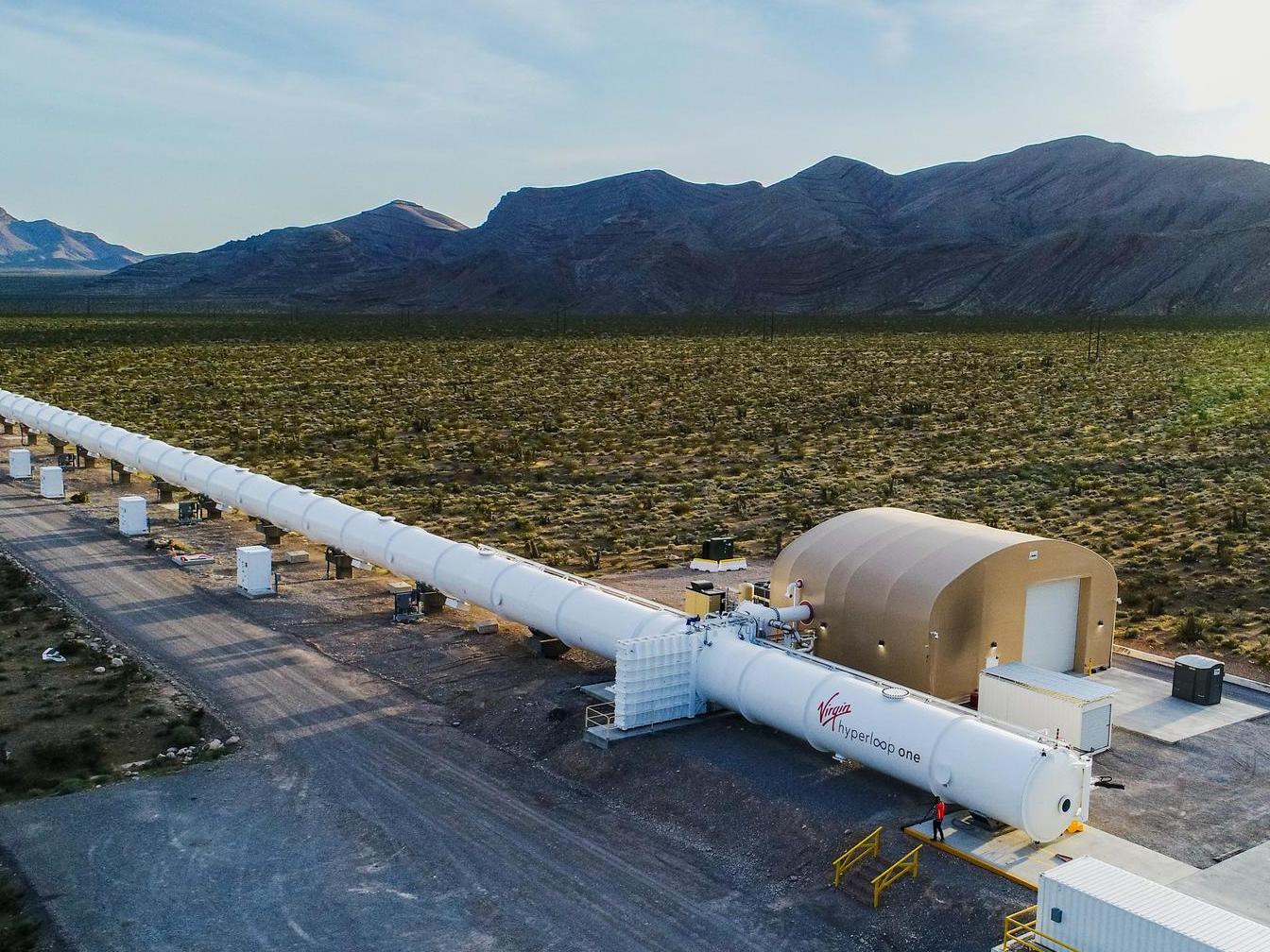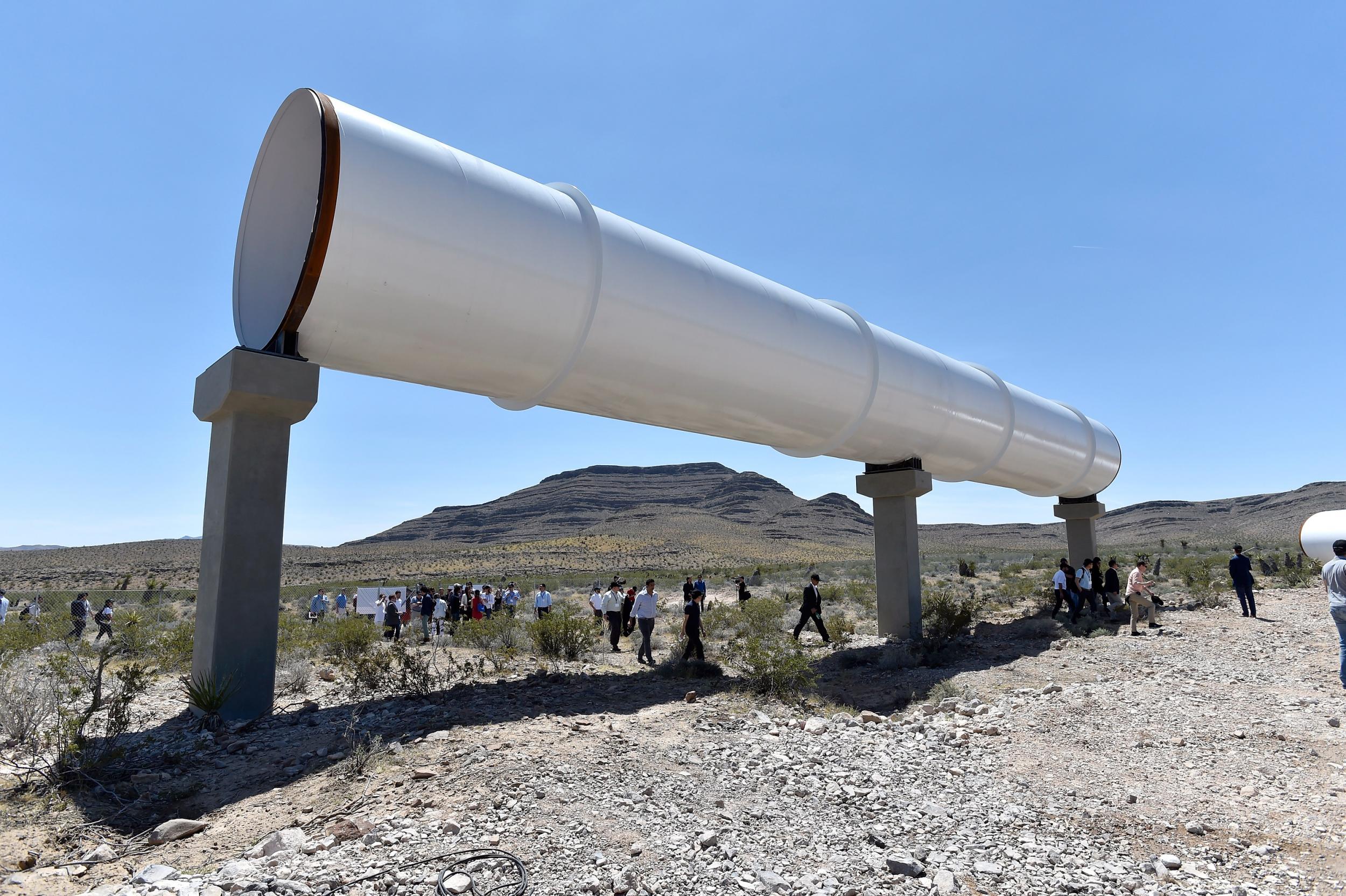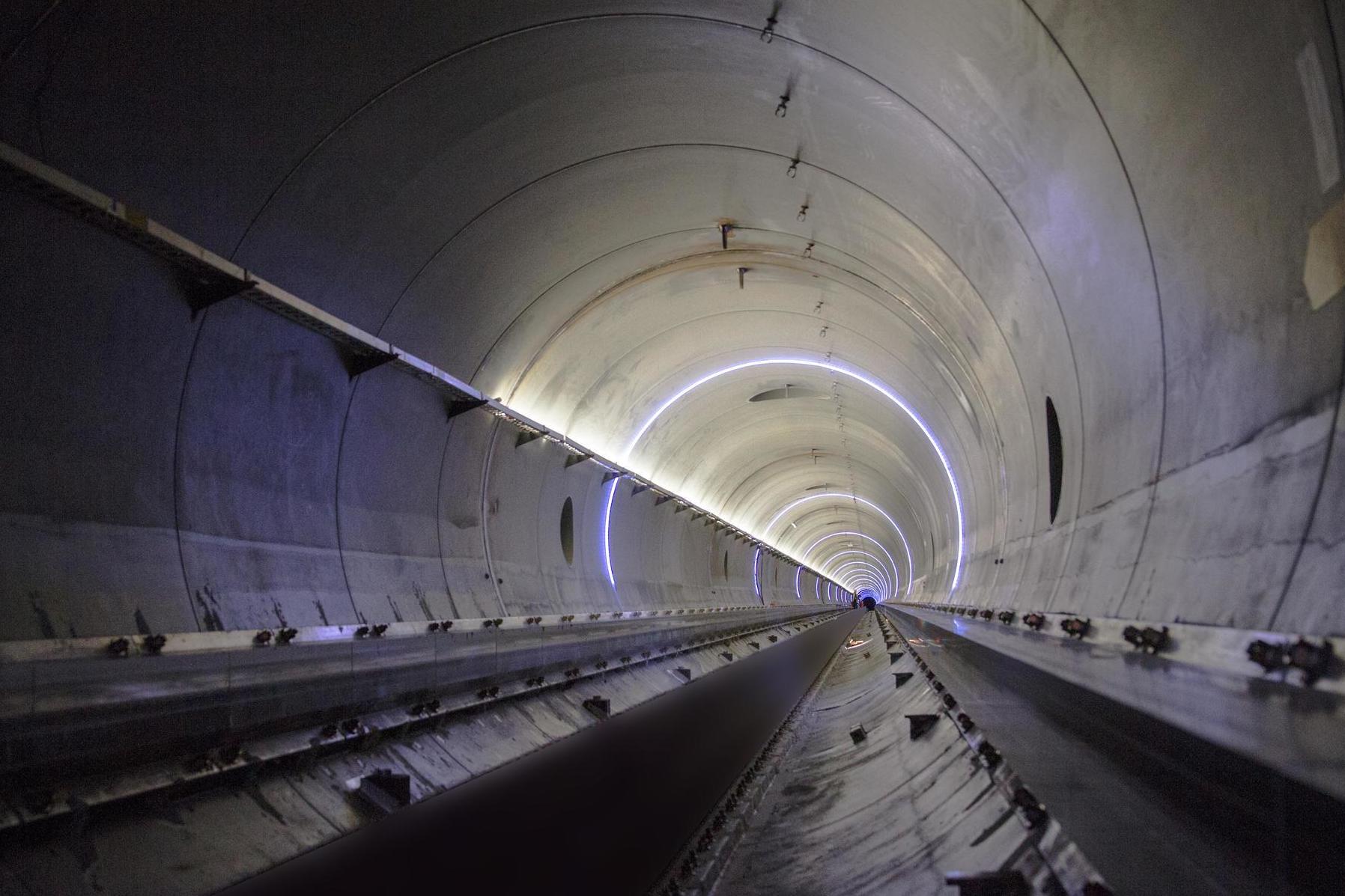Is hyperloop the future of travel?
Forget HS2, this game-changing technology could be capable of moving faster than a jumbo jet – but with none of the emissions, says Steven Cutts


All around the world, governments and innovators are going crazy for a new and game-changing technology: a magnetically levitated transportation system called hyperloop. The proponents of this innovation claim that their invention has the capacity to replace conventional trains and short-haul air travel. It will abolish distance and change the way we plan our societies and build our cities. Once a hyperloop network has been built, nothing will remain the same.
Perhaps predictably, Richard Branson is investing heavily in this new field. Virgin Hyperloop is one of the new and dynamic companies now racing to build the world’s first ultra-high-speed transport system.
This isn’t the first time that a Briton has been involved in the magnetically levitated future. In the Eighties, we were the first nation in the world to introduce a commercially operational magnetically levitated train. It was a small cabin without wheels that transported people at quite lacklustre speeds around Birmingham Airport. This was good, groundbreaking stuff and a reminder that Britain could still be a leader in tech. Since it had no wheels, it delivered a smooth and jolt-free ride.
A year or two down the line, they had to abandon the system and revert to ordinary buses because the maglev system kept breaking down. In part, this failure was due to the reluctance of the government and British Rail to keep spending on a promising system. A reminder of just how many teething problems a new transport can have.
Even before Branson got involved, the man of the moment – Elon Musk – had already made his move. Musk didn’t invent the hyperloop concept, any more than he invented the space ship or the electric car. He simply drew attention to an existing concept that had been discussed in engineering literature for years. Musk does, however, have an aptitude for actually building technologies that other people only talk about.
So why all the excitement? We’ve been using conventional trains for more than 150 years and they’re still going strong.
Well, a conventional train has a limited speed. Even if you can build a really powerful engine, there are a number of obstacles related to the wheels and their physical interaction with the track. All mechanical systems in contact with one another experience friction and when you watch a train pull into a station, you sometimes see sparks. As the train accelerates, the frictional forces increase and there are other wheel, axial and track-specific problems that we might have to fight against. But with magnetic levitation, most of these problems disappear. The train actually lifts itself up and effectively flies a few centimetres above the track with no physical contact between the vehicle and the ground. We have just eliminated the issue of mechanical friction and all the problems associated with very fast-moving wheels. Better still, an electrically powered vehicle produces almost no sound and no pollution in the region of the train.
But it’s not all rosy. As the linear motor accelerates, a new set of problems emerge. Air resistance increases with the square of the speed. Remember that the whole point in building exotic technology of this kind is that it enables us to travel very fast. Every time we double our speed the resistance created by the air increases by a factor of four.

Or at least that’s what an ordinary train would do. With the hyperloop system, engineers might be able to eliminate the problem of air resistance, too. The train consists of a series of sealed pods. Once the passengers are comfortable in their pod, the doors seal very tightly – as if we were closing the hatch on a spaceship. The pods are sealed in a long pipe, something that looks like an oil or gas pipeline on stilts. All air has been sucked out of the pipe and when the pod accelerates, there is no friction of any kind. In principle, at least, such a technology might be capable of speeds of up to 700mph and some engineers believe that we could go even faster than that.
The number of business people wanting to visit far-flung cities might fall suddenly. If it does, what will that mean for the future of air travel and any potential competitors that might soon emerge?
To put this in perspective, most commercial jets fly at about 400 to 500mph. We’re now talking about a transportation system that can exceed the speed of a jumbo jet on land. Better still, it could pick up its passengers at a station in the centre of the city and deliver them to the centre of their destination. Conventional airliners take off and land on a runway that is on the outskirts of the city and for short-haul flights, in particular, many passengers waste more time travelling to and from the airport than they spend in the air.
The hyperloop system would enable people to live in Edinburgh and commute into London on a daily basis. With the help of a tunnel under the Irish Sea, people living in Dublin could do much the same thing. The ridiculous housing prices associated with modern London might become a thing of the past in an environment where people could choose to live in almost any city in the British Isles and simply commute to the place where they actually work. By spreading the population and the workforce out, we’d be able to truly level the place up in the way that HS2 will try to but not be so effective. In a world concerned about global warming, the hyperloop network will enable us to do away with short-haul air travel and all the associated carbon emissions.

Right? Well, maybe. This kind of system would be immensely expensive to construct. Quite a lot of the cited costs for hyperloop track are hopelessly optimistic. You can’t easily integrate it into the existing rail system and an entirely new network would take 50 to 100 years to construct. In the UK, recent political debate has been centered around HS2. The project is now costed at a revised £100bn but some of the hyperloop companies are claiming that they can build a much longer system for as little as $6bn dollars. Indeed, written contracts have already been signed in Saudi Arabia. Even accounting for the low population density of the Saudi desert, these figures are likely to prove provisional.
Worse still, there is actually a precedent for this technology. Some years ago, the Germans produced a magnetically levitated monorail that seemed to work. They even went as far as building an airport transfer system in Shanghai, loudly proclaimed as the fastest train in the world (it goes at about 300mph). It’s been running very regularly for many years now but despite a number of elaborate proposals, no other nation has actually built a similar system. Part of the problem here is the emergence of rival technologies. Since the Shanghai link was built, the Chinese have figured out how to mass produce conventional high speed trains that can travel at over 250mph. Given the extremely high cost of a maglev system, it’s going to be difficult to find investors.
What’s unusual about the hyperloop concept and what makes it stand out from some of the other more outlandish engineering proposals is that there are people actually cutting metal and trying to build a prototype.

There are a lot of exciting computer graphics out there, all portraying the hyperloop concept, but the gap between a solid YouTube Video and the construction of a credible machine is a big one.
Incredibly, several governments have actually signed contracts with major new engineering groups before anyone has even built a demonstrator track. The Indian government is interested in building a hyperloop system between business centres. Plans have also been hatched to link San Francisco to Los Angeles with a similar system and Saudi Arabia has actually signed contracts to build a fantastically ambitious system between two major population centres.
What’s odd about all these contracts is that people are jumping the gun by signing up for a system of transportation that has not yet been built. It would make more sense to build a prototype and then a more advanced system over a good but modest distance and to eventually allow human passengers to enjoy it. In time, if the system could be shown to be safe then yes, we ought to think about expanding its use.
Given that the hyperloop system is likely to evolve slowly for some years into the future, it might also find itself up against virtual technology. Video conferencing has been taken to a new level by the Covid-19 epidemic but if anything, IT advances even faster than the physical transport system. In the not too distant future, the number of business people wanting to visit far-flung cities might fall suddenly. If it does, what will that mean for the future of air travel and any potential competitors that might soon emerge?
Hyperloop does better than maglev in that it eliminates air resistance and has the potential to more than double the maximum speed. It’s exciting stuff, but it needs someone to actually build a living breathing system over a reasonable physical distance and to demonstrate that it can run safely and regularly and at a profit. If they succeed, then the short haul airline markets of this world could be in for a real shock.
Join our commenting forum
Join thought-provoking conversations, follow other Independent readers and see their replies
Comments
Bookmark popover
Removed from bookmarks